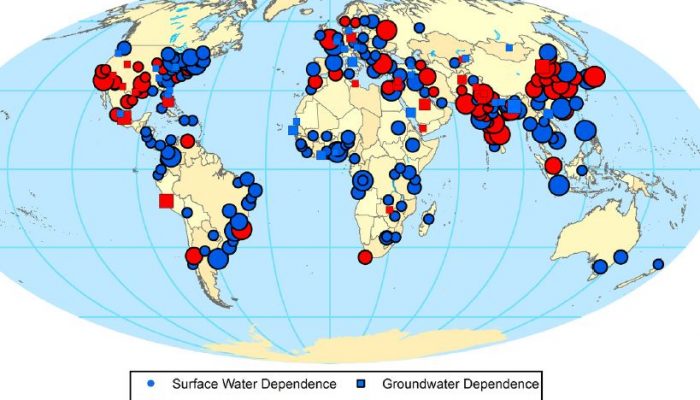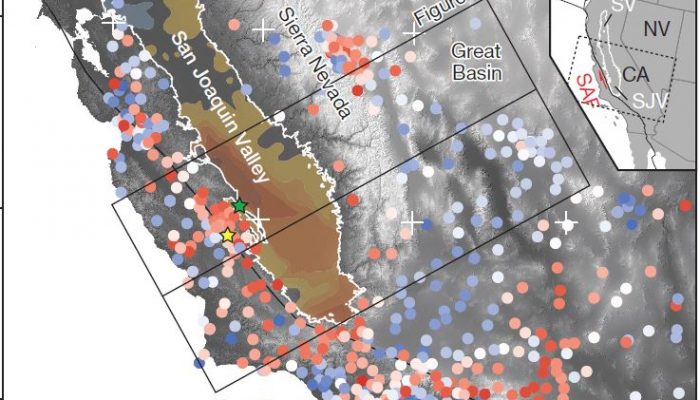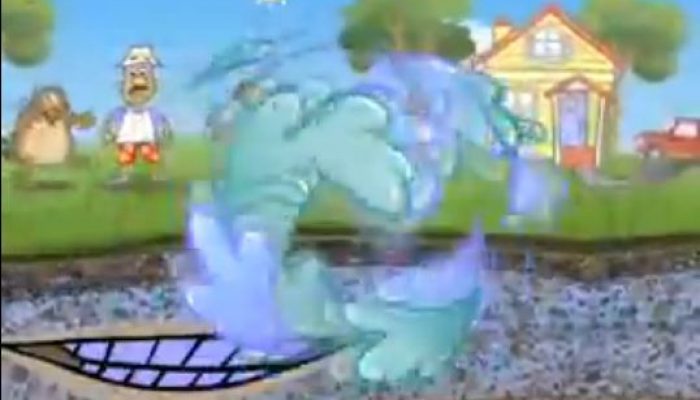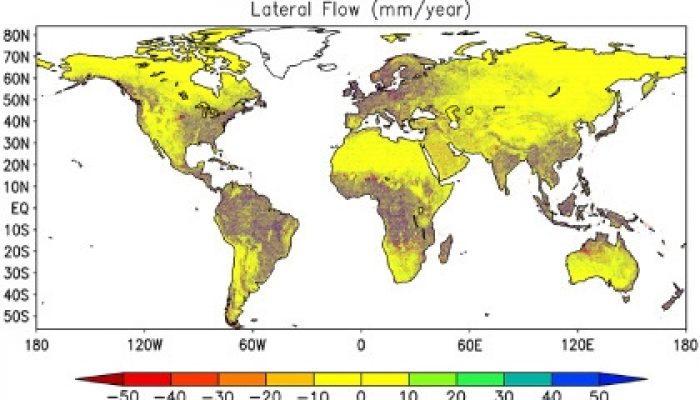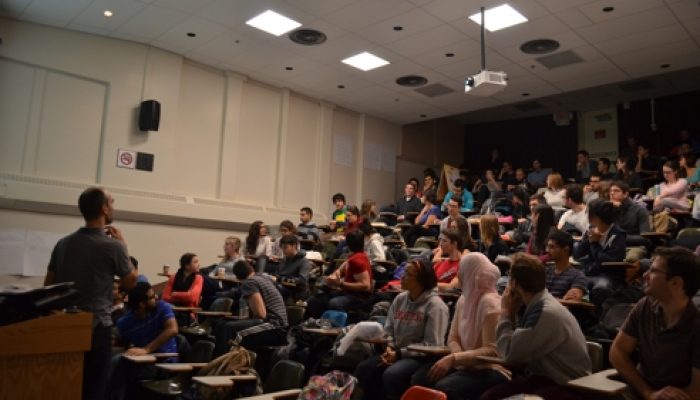From the McGill Newsroom As more people move to urban areas, cities around the world are experiencing increased water stress and looking for additional water supplies to support their continued grow. The first global database of urban water sources and stress, published online this week in Global Environmental Change, estimates that cities move 504 billion litres of water a distance of 27,000 kilo ...[Read More]
Groundwater extraction can move mountains
Contributed by Pascal Audet (webpage or email) Next time you eat food grown in the San Joaquin Valley of California, think about this: the water used for growing them probably came from under ground. Farmers do not really have a choice because the amount of water from rain and snow can’t keep up with the needs for growing food. Every year more water is drawn out of the ground for irrigation. ...[Read More]
Vote now for the coolest hydrogeology paper in 2013 contest!
Vote here before May 31st for the coolest 2013 paper in hydrogeology! Seven papers have been nominated – it will take almost no time! Here are links for more information about the contest or the Early Career Hydrogeologist Network.
What busy profs would like to read in a blog post about active learning
During a great workshop today on active learning in engineering at McGill I asked two questions (using Socrative) , of the audience. Here is a summary of 24 answers I received: 1) I would like to read blog posts about: activities for large classes (18% of people) activities for small classes (30% of people) technology in active learning (22% of people) wacky or creative ideas for active learning(3 ...[Read More]
Surprises and lessons learned from co-teaching an inter-university graduate course
Contributed by Grant Ferguson, University of Saskatchewan grant.ferguson@usask.ca In an earlier blog post, Tom discussed some of the advantages and disadvantages of co-teaching a blended graduate course to students at McGill University, the University of Wisconsin – Madison and the University of Saskatchewan. This course wrapped up last month… we definitely learned a few things during ...[Read More]
Best groundwater song ever? “Once in a Lifetime” by the Talking Heads?
Contributed by Kevin Befus, University of Austin – Texas website – email If there has ever been a song for hydrogeologists, “Once in a Lifetime” by the Talking Heads is the best. Here’s why I have taken this song on as my hydrogeologic theme song. But first, here is a link to the music video, in all of its early 1980’s glory: Display "Talking Heads – Once In A Lifetime (1980 ...[Read More]
European research vacation 2014
National Lampoon’s European Vacation was one of my favorite movies growing up but I hope it is not what happens over the next few weeks. I am visiting colleagues and giving talks at ETH Zurich, Utrecht University, Gottingen University, and then EGU in Vienna. Four countries in three weeks! I thought it might be useful to list my talks and dates here for people who might be interested… ETH Zu ...[Read More]
Great groundwater video!
Display "Groundwater Animation" from YouTube Click here to display content from YouTube. Learn more in YouTube’s privacy policy. Always display content from YouTube Open "Groundwater Animation" directly Clear graphics, good message and an awesome sing-along. what more could one ask for? the only message that I would add is the importance of virtual groundwater use in what we de ...[Read More]
The importance of groundwater for climate models
Contributed by Nir Krakauer nkrakauer@ccny.cuny.edu Does water fall if no one hears it? It does. Invisible water flows slowly under the ground, in soil and rock, downhill or from wet to dry areas. This groundwater eventually surfaces at rivers, springs, swamps, and other water features. As rivers and lakes get tapped out or polluted, more groundwater is being pumped out for irrigation and industri ...[Read More]
Active learning in large classes: a gallery ‘walk’ with a 100 students
Active learning in large classrooms is difficult but not impossible – here is one example of an active learning technique developed for small classrooms, the gallery walk, which I have successfully re-purposed for a class of 100 (but I see no real upper limit on class size with the modified version of this activity). “In Gallery Walk student teams rotate to provide bulleted answers to questi ...[Read More]

